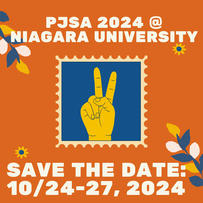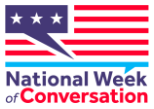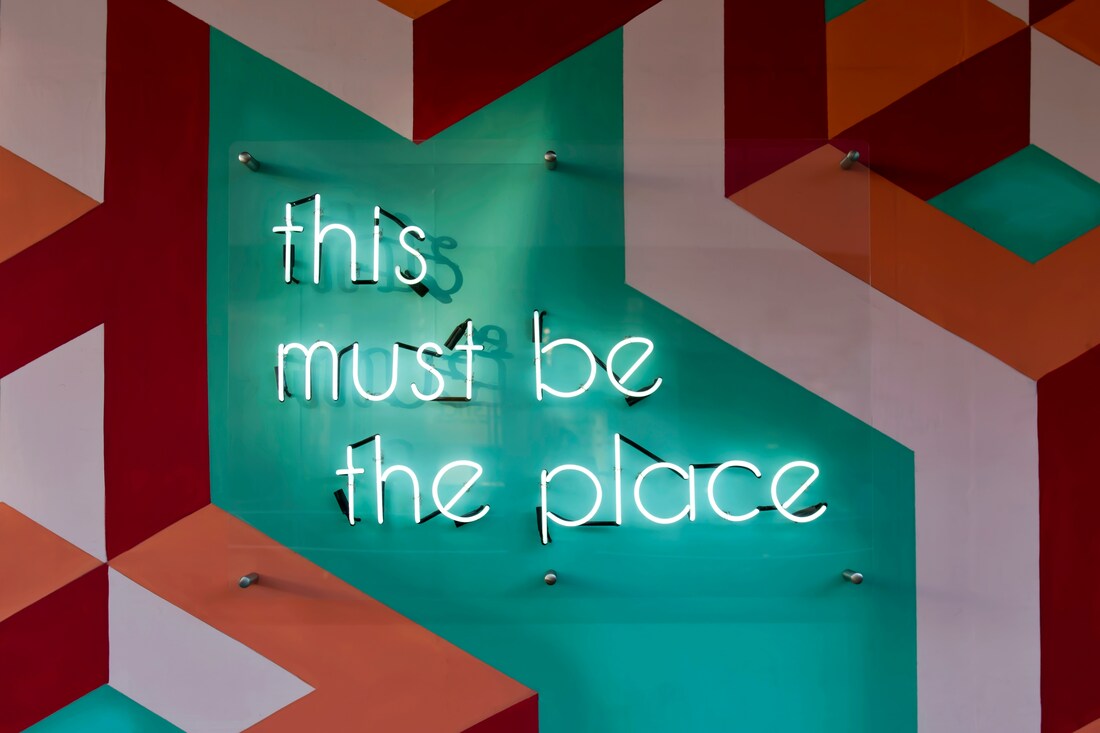 Lydia Smith, NCDD member and friend, leads the Emory Conversation Project at the Barkley Forum for Debate, Deliberation, and Dialogue at Emory University, helping students improve their skills in discussing tough topics together. Her initiative focuses on developing students' collaborative discussion skills to tackle challenging topics, inspired by her debate background. After attending Interactivity Foundation’s Summer Coach Training, Lydia integrated more interactive activities into ECP, using the Collaborative Discussion Toolkit. This toolkit, organized in modules, enhances students' critical and civic collaboration skills, fostering confidence in dialogue facilitation. The program's success led to its expansion across campus, earning accreditation and institutional support for broader integration, highlighting its transformative impact on students' communication abilities and campus dialogue culture. Read the blog post below and learn more here.
0 Comments
 Discussing their involvement in Civic Season - the period between Juneteenth and July Fourth - staff from the Heinz History Center in Pittsburgh and the Ulysses S. Grant National Historic Site highlight the initiative's goal to educate young adults about U.S. history and civics through diverse events nationwide. Maggie Gamson, a communications assistant for Made By Us and a student at the University of Central Florida, explores their emphasis on engaging Gen Z to prepare them for leadership roles by understanding and appreciating American history, showcased through activities like scavenger hunts, naturalization ceremonies, happy hours, and more. Read the blog post below and learn more here.  iCivics offers media-rich, collaborative experiences that immerse students in learning about landmark Supreme Court cases through role-playing simulations. Students act as Petitioners, Respondents, or Supreme Court Justices, applying Constitutional principles and precedents to fictional cases related to student rights. Modules like "Student Free Speech" and "Student Due Process" engage students in examining the First and Fourteenth Amendments, respectively, through interactive scenarios. Teachers are supported with facilitation guides and step-by-step instructions to effectively incorporate these simulations into their curriculum. Read more in the blog post below and learn more about the simulations here.  NCDD member and former board chair, Martín Carcasson, discusses how the Colorado State University Center for Public Deliberation is collaborating with a local newspaper to reshape opinion journalism. By integrating insights from deliberative practice, they aim to foster healthier civic discourse through quality interactions, analysis, and community building. Through initiatives like the Northern Colorado Deliberative Journalism Project, they seek to transform local journalism into a platform for constructive dialogue and collaboration. In the long term, the DJP and Coloradoan Conversations platform provide an important model for other communities, highlighting the benefits of collaboration between universities and local media. Learn more in the blog post below and read the The American Press Institute article here.  NCDD Member Organization, Essential Partners, and local YMCAs are launching a two-year project funded by a $224,000 grant to create a network of community bridge-builders across the U.S. Using the Reflective Structured Dialogue approach, they will train YMCA staff, volunteers, and youth leaders to foster inclusive public discourse and enhance social cohesion. The initiative aims to empower communities to navigate differences and promote a sense of inclusion and belonging. Learn more in post below and on EP's site here.  The Peace & Justice Studies Association (PJSA) 2024 conference, themed "We Are All Connected: Fostering Intersectionality and Solidarity," will take place from October 24-27 in New York. The conference, a collaboration between PJSA and the Justice House program at Niagara University, aims to create a learning community centered on pursuing justice, empowering students, and fostering collaboration with advocacy and peace organizations. Proposal submissions due May 1, with early bird registration available until July 15, 2024. Learn more below and on PJSA 2024 site here.  Our constitutional democracy requires students to develop bridge-building skills to collaborate across different perspectives. "Bridging Heroes in the Prohuman Classroom" is a panel discussion featuring innovative civics educators aiming to inspire young bridge builders and foster a sense of shared humanity in classrooms. Moderated by Kent Lenci and joined by NCDD members - Living Room Conversations and AllSides, the event aims to address the prevalent demonization and division in society by equipping students with skills to collaborate across perspectives. Happening TODAY, April 18th at 8pm Eastern, 5pm Pacific - listen to civic educators and develop new ideas to implement at your school! Learn more in the post below and register here! We are excited to announce the new NCDD Job & Internship Board!
Our job and internship board connects individuals and organizations committed to driving positive change through meaningful conversations and collaboration. Whether you're a seasoned practitioner or a newcomer to the field, our job and internship board offers a wide array of opportunities tailored to your skills and interests.
We'll share new positions via the Job-Internship Board regularly, so make sure you bookmark the page and check back when you're looking for new opportunities. You'll notice at the top of the NCDD site, under the "News" tab, there is link to the new "NCDD Job-Internship Board". Jump to the NCDD Job & Internship Board here: www.ncdd.org/dd-jobs-internship-board. The Making A Living List (D&D Jobs List) will still remain active and we encourage members to continue sharing job/internships in that space if that is your preference. Opportunities shared on the Jobs list will be reshared on the Jobs Board to help further boost announcements in a public-facing place on the NCDD site for easier access.  Public Agenda is accepting applications for the Pennsylvania Education Equity Project, aiming to fund projects demonstrating effective strategies for implementing Pennsylvania’s new culturally relevant and sustaining education mandate. Six or more grants of up to $30,000 each, will be awarded to researchers affiliated with public or nonprofit U.S. universities. The deadline to apply is 11:59pm ET on May 1, 2024. Join one of the online Q&A sessions on either Friday, April 12th, or Tuesday, April 16th. Learn more below and on PA's site here.  Starting this week - Join the American Association of State Colleges and Universities (AASCU)'s Practicing Democracy Workshop Series, happening until the end of April. This series with AASCU's American Democracy Project supports helping our campuses prepare students and communities to participate in the 2024 local, state, and national elections. Thank you to Ellen Knutson, program manager with AASCU Practicing Democracy, for sharing this announcement with the NCDD network! Learn more below and register on AASCU's site here. If you're looking to gain further related skills, then make sure you join us for our webinar tomorrow - "Building Trust in Elections through Living Room Conversations", co-hosted with NCDD member organizations - National Civic League and Living Room Conversations. April 10th at 4 pm ET, 3 pm CT, 2 pm MT, 1 pm PT. Learn more here and register! |
Categories
All
|
Follow Us
ABOUT NCDD
NCDD is a community and coalition of individuals and organizations who bring people together to discuss, decide and collaborate on today's toughest issues.
© The National Coalition For Dialogue And Deliberation, Inc. All rights reserved.
© The National Coalition For Dialogue And Deliberation, Inc. All rights reserved.


 RSS Feed
RSS Feed